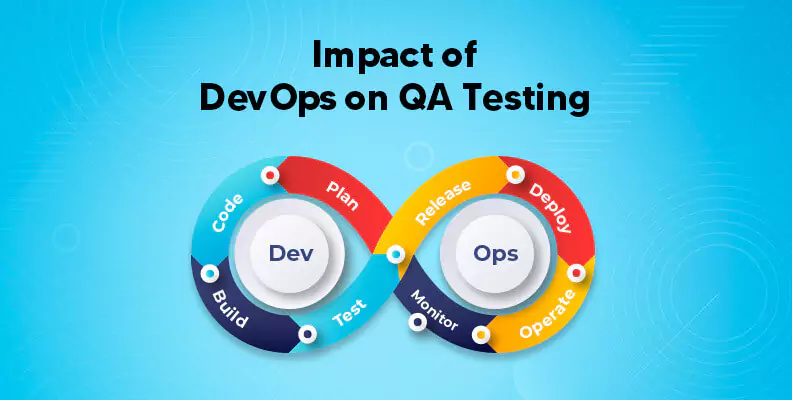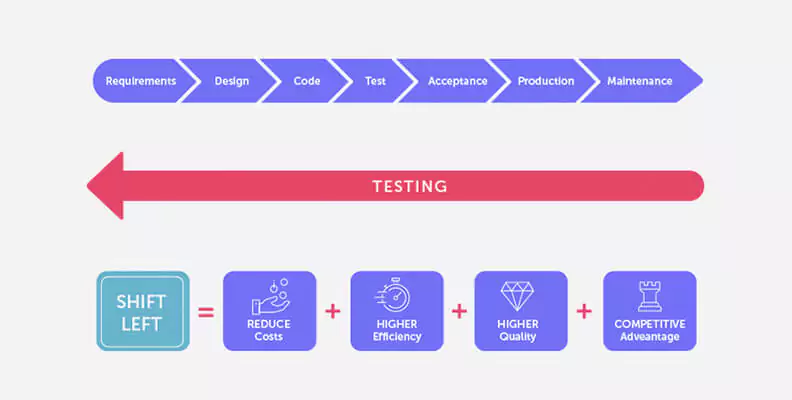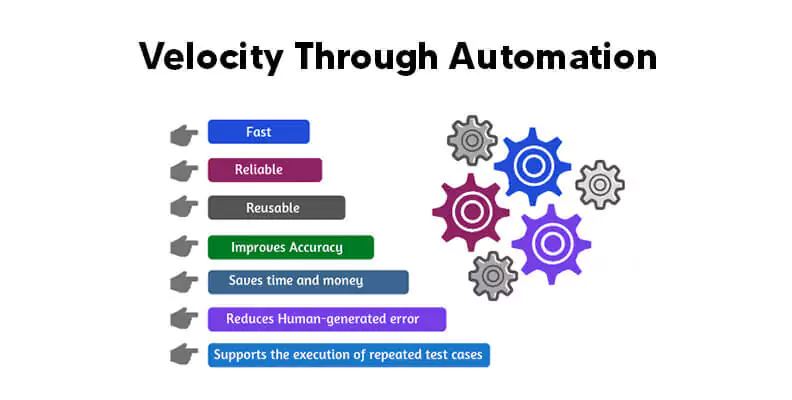Loading.....
Impact of DevOps on QA Testing
In the growing world of software development, the introduction of DevOps has brought a meaningful shift in the way teams collaborate, communicate and operate with each other. Software testing, which is traditionally a post-development phase, is now undergoing a significant transformation as DevOps breaks down silos and encourages a culture of collaboration, continuous integration, and swift delivery. This paradigm shift is fundamentally changing the landscape of software testing, which further impacts the efficiency, speed, and overall product quality. The key impacts of DevOps on software testing approaches are beneficial for the smooth functioning of the software testing cycle.

Key Impacts of DevOps on SoftwareTesting

1. Nurturing Collaboration Over Silos
DevOps is a methodology which affects the software delivery process. It is a cultural shift which aims to break down the barrier between development and operation teams.The main focus is on nurturing an environment where skills and perspectives come together, promoting a joint approach to software development and testing. The shared ownership of projects that results from this collaborative culture ensures a united and accountable execution of the entire software development lifecycle.
2. Accuracy in Continuous Integration
Continuous integration (CI) is one of the extremely important parts of DevOps which urges developers to seamlessly merge code into a shared repository multiple times a day. This continuous integration is complemented by continuous testing which creates a smooth development and testing cycle.This process not only results in accelerated development but also increased reliability in the testing process which ultimately leads to more robust and efficient software deliveries.
3. Proactive "Shift-Left" Testing

The shift-left testing concept is introduced by Devops.It basically promotes the testing process earlier in the development process even during the coding phase. This proactive strategy aims to identify and resolve issues at an early stage, significantly reducing the cost associated with defect fixes. Integrating testing closely with the entire development lifecycle, teams experience a complete and streamlined process that contributes to increased software quality.
4. Velocity Through Automation

DevOps places a strong emphasis on extensive test automation, aiming to achieve speed and efficiency in the testing process. Automated testing tools play a vital role in increasing the testing speed as it reduces the time taken in executing all the possible test cases.It also helps in providing immediate feedback to developers. Beyond the speed, automation enhances test coverage, reduces manual errors, and facilitates swift issue identification, contributing to an overall improvement in software quality.
5. Cultural Shift Towards Communication
DevOps goes beyond tools and processes, initiating a cultural shift that emphasizes improved communication and collaboration among team members. This transformation is pivotal for ensuring alignment with project goals and requirements. Collaborative tools, shared dashboards, and cross-functional meetings become integral components, fostering an efficient and transparent development process. Enhanced communication accelerates issue resolution, solidifying testing as an indispensable aspect of the entire development lifecycle.
6. Real-Time Feedback Loops
DevOps introduces faster feedback amongst the team members specially between development and testing teams which provides immediate insights into the impact of changes done in the development. Automated testing and continuous integration offer real-time feedback, empowering developers to address issues promptly.This iterative approach helps in reducing the time and efforts required for fixing the existing bugs in the application and also provide a culture for continuous improvement. Teams can communicate in a loop, resulting in faster releases and heightened responsiveness to customer needs.
7. Streamlined Release Management
The integration of development and operations in a DevOps environment streamlines release management. Automated testing and continuous deployment empower teams to release new features and updates more frequently. This streamlined process minimizes the risk of manufacturing defects, and the ability to quickly revert changes in case of issues ensures a reliable release management process. This quickness in release management contributes to a responsive and efficient software delivery cycle.
Conclusion
In conclusion, DevOps stands as a revolutionary force transforming the landscape of software testing. Through a collaborative culture, continuous integration, proactive testing methodologies, automation, a cultural shift toward enhanced communication, real-time feedback loops, and streamlined release management, DevOps paves the way for a future where efficiency, speed, and increased product quality are the important aspects of software development. As organizations continue to embrace and refine DevOps principles, the symbiotic relationship between development and testing will continue to evolve, shaping a future of innovation and excellence in software delivery and software development life cycle.
 Back to blog
Back to blog












